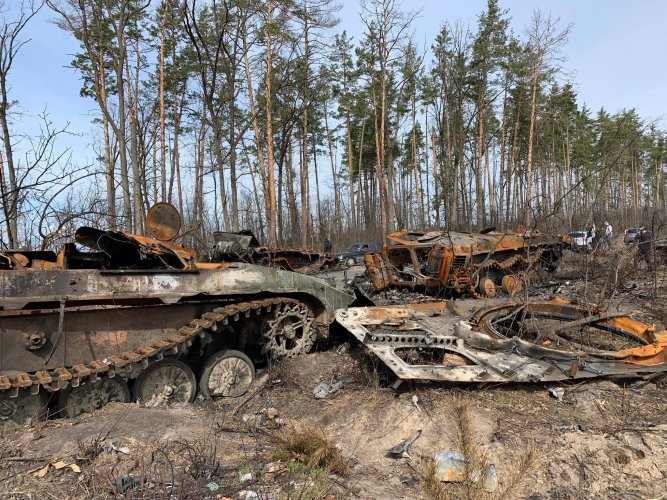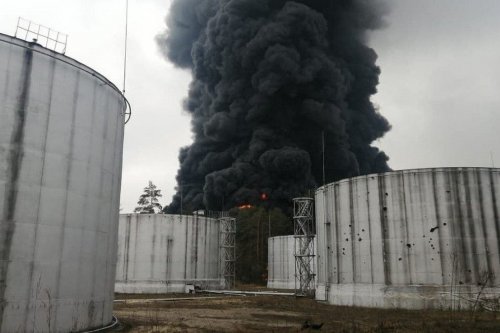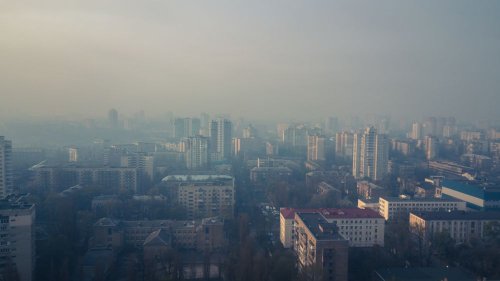Experts believe that at least two generations of Ukrainians will feel the damage caused to nature by hostilities as a result of soil, air and water pollution, which can cause serious diseases, including cancer.
The war can also accelerate global warming, because, among other things, agricultural storage facilities where greenhouse gases are stored, which are used to process agricultural products as refrigerants, are destroyed, reports Correspondent.net.
Pollution can move even to neighboring countries, and leaks of harmful substances destroy entire ecosystems. UN satellite images record a significant increase in the number of fires in nature reserves, protected areas and forested areas.
"Crimes against nature are terrible because they have sad consequences for the future. Especially when it comes to chemical pollution of soil and water, destruction of ecosystems and reduction of biodiversity. We record all these types of ecocide," the article noted.
Since the beginning of the war, more than 2,000 crimes by the occupiers against Ukrainian nature have been recorded. Already, the amount of losses reaches UAH 204 billion. Lawsuits against the aggressor country to international courts are being prepared.
Currently, the number of destroyed tanks with greenhouse gases is unknown. Greenhouse gas emissions are also added from the burning of oil products at destroyed oil depots and oil refineries.
In addition, a reduction in the supply of Russian natural gas to the EU will lead to its replacement by coal, which will also increase carbon emissions.
The exact area of destroyed forests is also unknown. Some forests in the east and south of Ukraine are on the edge of their range in conditions of high temperatures, which will make it difficult to restore them.
It was noted in the material that due to attacks on storage facilities for agricultural chemicals, pesticides and mineral fertilizers fall into the soil on which agricultural crops are grown, and into groundwater, which is used as a source of drinking, industrial and agricultural water supply. Fields are also polluted as a result of falling artillery shells.
An example of how long war crimes against the environment take to make themselves felt can be the city of Ypres in Belgium, a key point on the Western Front of the First World War. Almost 100 years later, in 2011, scientists conducted a soil study and found that the content of heavy metals still exceeded the norm.
Direct environmental damage was also caused in Mariupol. After all, factories that used various substances that are typical pollutants of the environment were destroyed in the city. Destroyed sludge accumulators, warehouses and warehouses of various poisonous substances. All chemicals and substances got into the environment. And in Severodonetsk, people felt emissions of allegedly nitric acid. But it is impossible to assess whether it was exactly this substance in the combat zone, because civilian experts have no way to get there.
"It will be possible to assess the damage caused by the occupiers and the consequences of that damage only after the war. Now it is important to record every crime against nature, if possible. But it can be assumed that at least two generations of Ukrainians will feel the damage to one degree or another. caused to our nature by military actions. Someone will feel it in their own health, but, most likely, in a few years. These can be various diseases, including oncology. It all depends on how close a person was to the impact of destroyed dangerous objects objects or damaged ecosystems and other factors," said the ecologist of the human rights of non-governmental organization "Ecology. Law. Human" Anatoliy Pavelko.
Earlier, EcoPolitic wrote, that experts believe that from poisoning by carcinogenic gases as a result of rocket hits more people die than from the hits themselves.
As EcoPolitic previously reported, a fire broke out in Luhansk Oblast as a result of the actions of Russian troops destroyed 26,043 hectares of forest, which caused damage to the environment in the amount of about 98.7 billion hryvnias.





